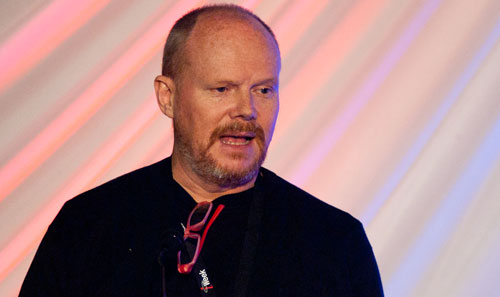
Could an electronic “potato” rescue Africa from poorly developed and expensive communications infrastructure? Steve Song, telecommunications fellow at the Shuttleworth Foundation, thinks it could go a long way in helping.
Song is involved in a project that is developing an innovative open-source project called the Mesh Potato, a sub-US$100 device that he says will bring cheap communications access to the continent.
The Mesh Potato uses open hardware used to create a Wi-Fi access point that also carries a telephone connection. The devices connect to each other, creating a mesh network, a kind of mini telephone network that can be deployed cheaply in rural Africa.
The Shuttleworth Foundation is backing the initial development of the hardware design and firmware.
The African regulatory environment has long been the biggest obstacle to telecoms development and Song says this has stifled what little innovation there has been. The Mesh Potato circumvents the regulatory bottlenecks as there is no charge to set up and run the mini network.

“If you are non-profit organisation, you can generally operate the networks legally as long as you not charging for services,” Song says.
Charging for the service in SA would mean having to apply for an electronic communications licence.
The mini network can connect to national telephone networks using voice-over-Internet Protocol services.
The system has been designed to weather the harsh environments of the continent and Song says each unit has a 400m range in open spaces. “In more urban environments, they will have a shorter range because of building interference,” Song says.
He says Village Telco, the group developing the device, is working on a device with better range, using an upgraded version of the Wi-Fi standard.
Song says it’s critical for Africa’s development that communications infrastructure gains more widespread traction on the continent. He says it’s as fundamental to a modern economy as clean drinking water, he says.
Song, who was speaking at the Tech4Africa conference in Johannesburg on Thursday morning, says access to broadband Internet access could address many of the social troubles plaguing Africa.
The continent has been falling behind in the provision of Internet access, with politicians focused on bringing services as basic as schooling and access to drinking water to citizens.
However, he says communications technologies can bring as much of a benefit. He points to recent research that links the relationship between communications access and the prevalence of malaria. “Proximity to communications infrastructure decreases your chance of dying from malaria,” he says. — Candice Jones, TechCentral
- Subscribe to our free daily newsletter
- Follow us on Twitter or on Facebook




